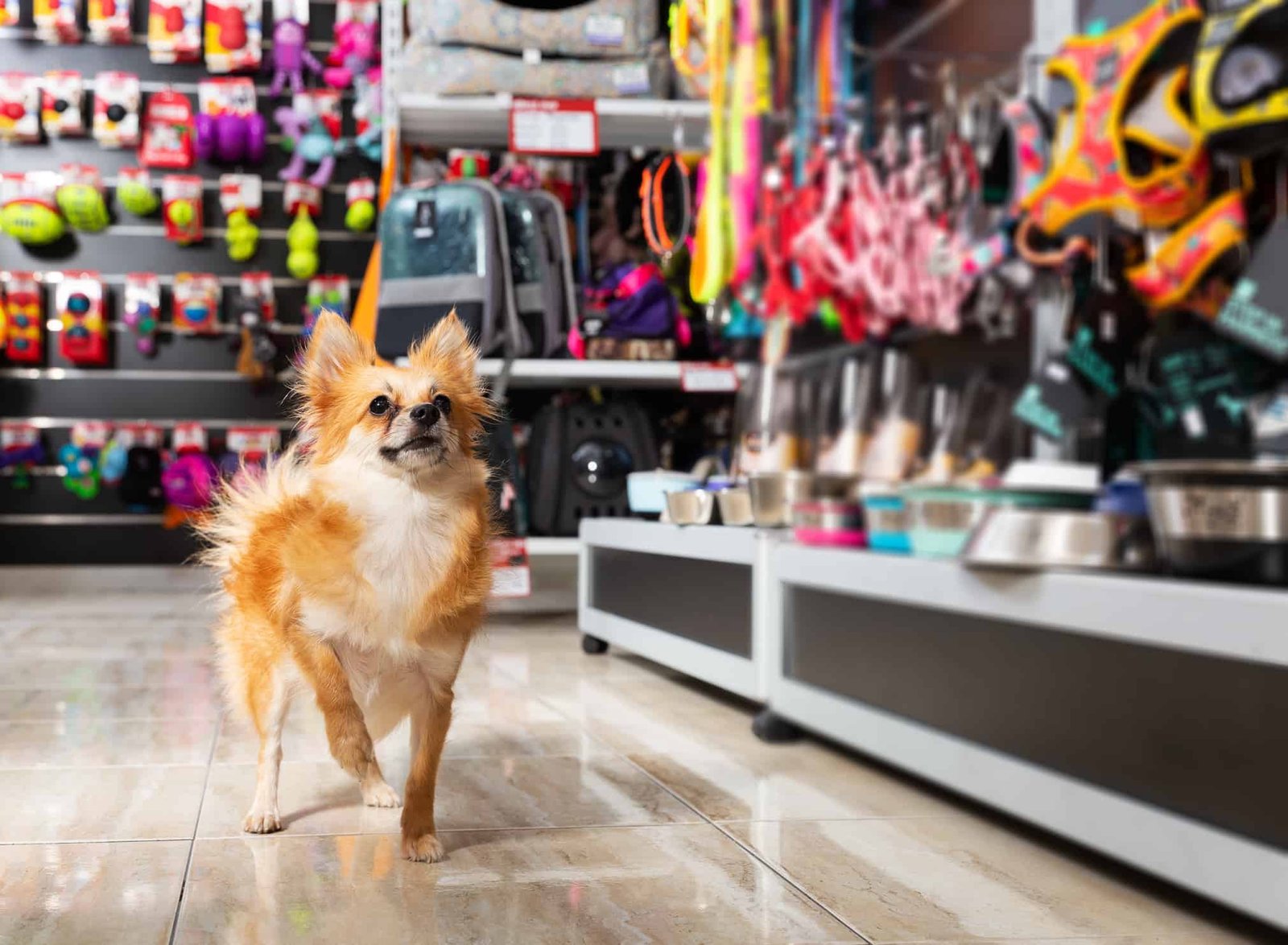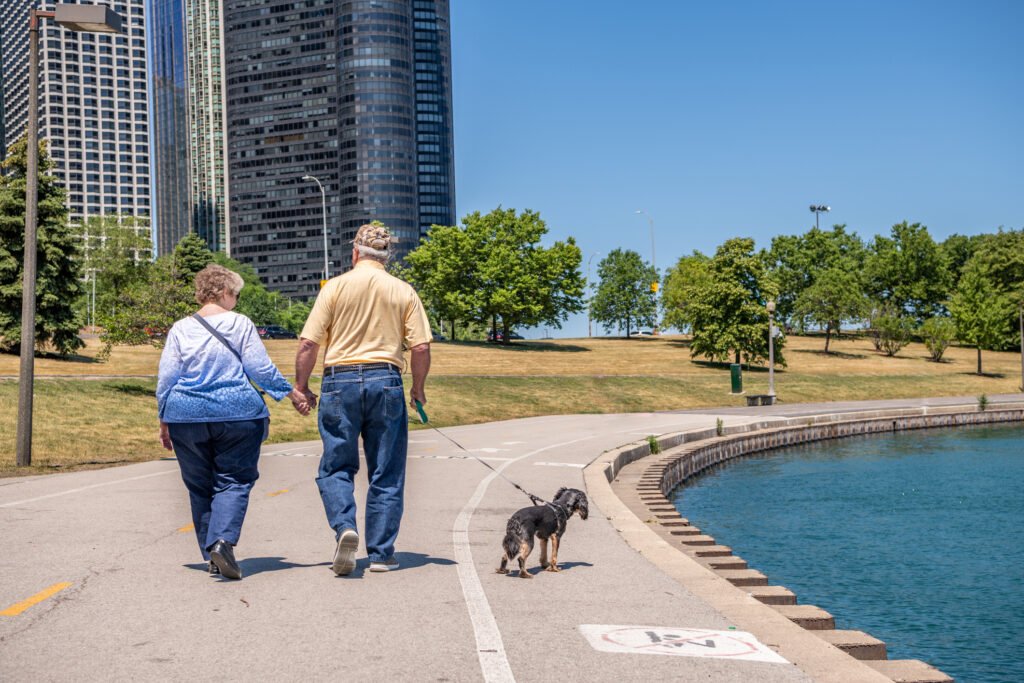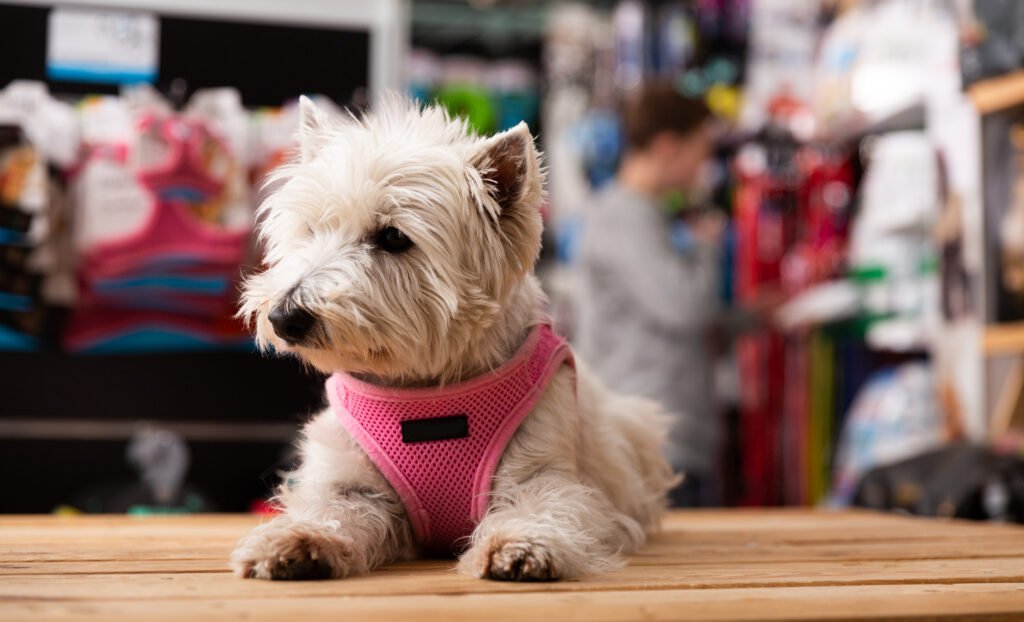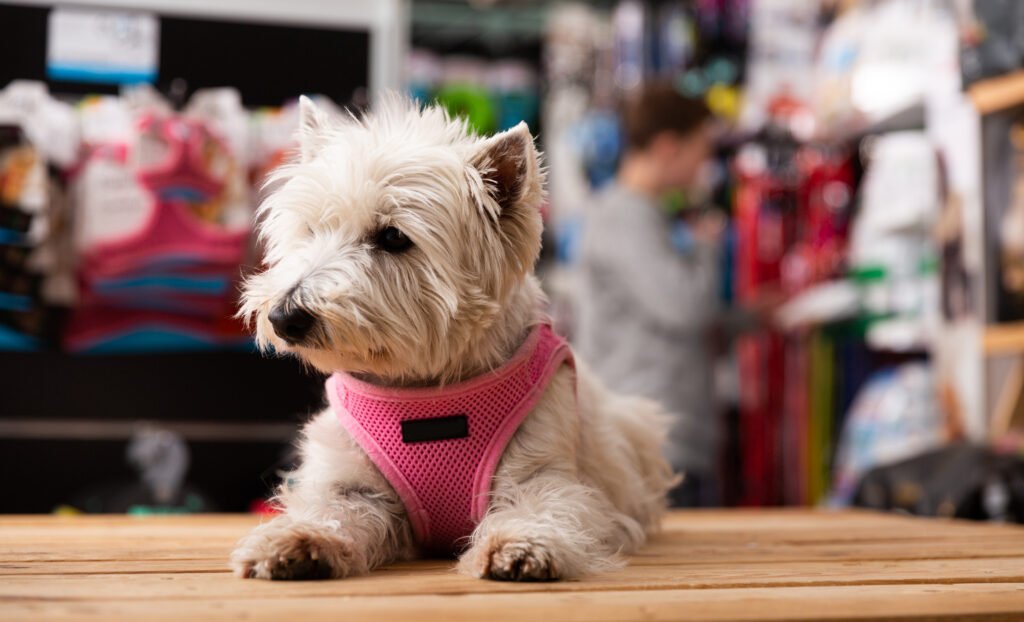Table of Contents
Having a well-rounded dog is essential for their overall happiness and development, and socialization plays a crucial role in achieving this. By exposing your furry friend to different environments and situations, you are helping them build confidence and adaptability. Public settings such as pet stores, outdoor recreation stores, coffee shops, and dog parks provide excellent opportunities for socialization. However, it is important to be cautious and follow rules and regulations to ensure a positive experience for both your dog and others. Group dog training classes are another great way to provide controlled and positive socialization opportunities. By prioritizing socialization, you are paving the way for a well-rounded and stable companion.
Benefits of Socialization

Increased confidence
Socialization plays a crucial role in boosting a dog’s confidence. By exposing them to various environments, people, animals, and experiences, dogs learn to navigate unfamiliar situations with ease. As they become more comfortable in social settings, their confidence grows, allowing them to approach new situations with a positive mindset. This increased confidence not only benefits their overall well-being but also helps in shaping their behavior and attitude towards others.
Reduced anxiety and fear
One of the significant benefits of socialization is its ability to reduce anxiety and fear in dogs. Through controlled exposure to new stimuli, dogs learn to handle challenging and potentially intimidating situations with composure. By gradually desensitizing them to fearful stimuli, such as loud noises or crowded places, dogs can overcome their anxieties and develop a sense of calmness. This newfound confidence and reduced fear contribute to better mental and emotional health for dogs.
Improved behavior and obedience
Socialization goes hand in hand with good behavior and obedience training. When dogs are properly socialized, they learn how to interact appropriately with humans, other animals, and their surroundings. By exposing them to positive social interactions, they develop the necessary social skills to communicate effectively and understand boundaries. This leads to improved behavior, better impulse control, and ultimately, a more obedient and well-behaved dog.
Enhanced communication skills
Effective communication is vital in any social setting, and the same applies to dogs. Through socialization, dogs learn how to communicate their needs, emotions, and intentions in a clear and appropriate manner. By interacting with different people and animals, they develop a better understanding of body language, vocal cues, and social cues. This enhanced communication skill set not only strengthens their bond with their owners but also ensures harmonious interactions with others.
Better adaptability to new environments
Life is full of changes and new environments, and dogs who have been properly socialized are better equipped to handle these transitions. By exposing them to a variety of environments during their socialization period, dogs become more adaptable and versatile. They learn to adjust quickly to new surroundings and are less likely to become fearful or anxious in unfamiliar situations. This adaptability plays a crucial role in ensuring the well-being and comfort of dogs throughout their lives.
Types of Socialization
People socialization
People socialization involves exposing dogs to different individuals of varying ages, genders, and appearances. This type of socialization helps dogs develop positive associations with humans and learn appropriate behavior when interacting with them. It is important to introduce dogs to people of different backgrounds, including children, so they grow accustomed to various human behaviors and reactions.
Dog socialization
Dog socialization focuses on exposing dogs to other dogs in a controlled and supervised environment. This type of socialization is crucial for dogs to learn appropriate social cues, develop social hierarchies, and engage in positive play. Well-socialized dogs are more likely to have positive interactions with other dogs, reducing the risk of aggression or fear-based behaviors.
Other animal socialization
While dogs primarily interact with other dogs, it is beneficial to expose them to a variety of other animals. This can include encounters with cats, rabbits, livestock, or even exotic animals in a safe and controlled environment. By introducing dogs to different species, they learn to coexist peacefully and avoid predatory behaviors towards animals that they encounter later in life.

Environmental socialization
Environmental socialization involves exposing dogs to different settings, such as busy streets, parks, public transportation, and various indoor and outdoor environments. Dogs who have experienced a wide range of environments during socialization become more adaptable, confident, and comfortable when faced with new surroundings. This type of socialization helps dogs navigate their environment with ease and reduces the likelihood of fear or anxiety in unfamiliar places.
Sensory socialization
Sensory socialization focuses on exposing dogs to various sounds, smells, and sights. By gradually introducing dogs to different stimuli, they become desensitized to potential triggers that may cause fear or anxiety. Dogs who have undergone sensory socialization are less likely to react adversely to loud noises, unfamiliar scents, or visual stimuli. This type of socialization creates a well-rounded and confident dog who can handle different sensory input without fear or stress.
Importance of Early Socialization
Critical period for socialization
Early socialization is crucial for dogs as it coincides with the critical period of their development. The critical period typically occurs between 3 to 16 weeks of age, during which puppies are most receptive to new experiences and learning. It is during this time that they are more open to socializing with different people, animals, and environments. Proper socialization during this critical period sets the foundation for their future behavior and social skills.
Prevention of behavioral problems
Behavioral problems, such as aggression, fear, and separation anxiety, often arise from a lack of socialization. Dogs who have not been adequately exposed to people, animals, and new experiences may exhibit fear-based behaviors or become anxious in unfamiliar situations. Early socialization helps prevent these behavioral problems from developing by allowing dogs to build positive associations with a wide range of stimuli, making them more emotionally resilient and adaptable.
Foundation for lifelong social skills
Socialization during a dog’s early stages of life provides a strong foundation for lifelong social skills. The experiences they have during this critical period shape their ability to communicate, adapt, and interact with the world around them. Dogs who have received proper socialization as puppies are more likely to have positive relationships with humans and other animals, making them well-adjusted and socially confident throughout their lives.
Positive associations with new experiences
Early socialization creates positive associations in dogs’ minds with new experiences. By exposing them to a variety of people, animals, and environments at an early age, dogs learn that novelty is not something to fear but rather something to embrace. This positive reinforcement from early socialization encourages dogs to approach new experiences with curiosity and confidence, leading to a lifetime of open-mindedness and an eagerness to explore new environments.
Socialization and Confidence Building
Exposure to various environments
Exposing dogs to various environments during their socialization period helps build their confidence. By gradually introducing them to different settings, such as parks, streets, cafes, and stores, dogs learn to navigate unfamiliar environments with ease. This exposure broadens their comfort zone and allows them to adapt quickly to new surroundings, reducing anxiety and fear.
Positive interactions with different people and animals
Positive interactions with both people and animals play a significant role in building a dog’s confidence. By exposing dogs to different individuals of varying ages, sizes, and appearances, they learn to interact appropriately and develop positive associations with humans. Likewise, allowing dogs to engage in supervised play with other dogs and animals promotes healthy social interactions and builds confidence in their social skills.

Introduction to new sounds, smells, and sights
Socialization should include exposure to a variety of sounds, smells, and sights. By introducing dogs to different stimuli during their socialization period, they become accustomed to new sensory experiences, reducing the likelihood of fear or anxiety-driven responses. Dogs who have been exposed to various sounds, such as doorbells, traffic noises, or vacuum cleaners, are less likely to exhibit fear-based behaviors associated with these sounds in the future.
Gradual desensitization to potentially fearful situations
Socialization provides an opportunity for gradual desensitization to potentially fearful situations. By systematically exposing dogs to situations or stimuli that may initially cause fear or anxiety, they can gradually adjust and become more comfortable. This gradual approach allows them to build confidence and develop coping mechanisms to handle potentially challenging situations. With each successful exposure, dogs grow more resilient, ultimately reducing their fear and anxiety.
Public Settings for Socialization
Pet stores
Pet stores can be a great place for socialization as they offer a controlled environment with various stimuli and opportunities for positive interactions. Taking your dog to a pet store allows them to encounter different people, animals, and sounds, helping them become more comfortable in public settings.
Home improvement stores
Home improvement stores provide an opportunity for dogs to experience a different type of environment. With their wide aisles, different scents, and bustling activity, these stores offer dogs a chance to practice their social skills and adaptability.
Outdoor recreation and sporting stores
Outdoor recreation and sporting stores are ideal for socializing dogs who enjoy being active. These stores often have a range of equipment, energetic customers, and other pets, allowing dogs to engage in positive interactions and experience a more dynamic environment.
Coffee shops and cafes
Coffee shops and cafes offer a relaxed and social atmosphere where dogs can practice their social skills and learn to remain calm in busy environments. With outdoor seating options, dogs can observe and interact with people and other animals, providing a valuable socialization opportunity.
Bars and restaurants
Some bars and restaurants with outdoor seating areas welcome well-behaved dogs. By exposing your dog to these environments, they can experience different smells, sounds, and social dynamics, all while enjoying quality time with their owners.
Downtown areas
Downtown areas are bustling with activity, providing numerous socialization opportunities for dogs. By taking your dog for walks in downtown areas, they can encounter various people, sounds, and sights, helping them develop their social skills and adaptability in busy urban environments.

Dog parks
Dog parks are specifically designed for socialization and provide a safe and controlled environment for dogs to interact with others. By allowing your dog to engage in supervised play and observe different canine behaviors, they can enhance their social skills and build confidence in their interactions with other dogs.
Rules and Regulations at Public Places
Leash laws
When visiting public places, it is important to adhere to leash laws and regulations. These laws are in place to ensure the safety of both dogs and others in public spaces. Keeping your dog on a leash not only prevents them from approaching unfamiliar dogs or people without consent but also helps maintain a controlled and positive socialization experience.
Clean-up after your dog
Responsible pet ownership includes cleaning up after your dog. Whether in a park, store, or downtown area, it is essential to pick up after your dog to maintain cleanliness and respect for others. Always carry waste bags to ensure you can properly dispose of waste during your socialization outings.
Respect other patrons
When socializing your dog in public places, it is crucial to be respectful of other patrons. Ensure that your dog’s behavior does not intrude upon or disrupt the experience of others. This includes keeping your dog under control, keeping them from approaching others without permission, and respecting personal boundaries.
Follow store policies
If you choose to socialize your dog in stores, cafes, or restaurants, it is essential to follow their individual policies and guidelines. Some establishments may have specific rules regarding dogs, such as requiring them to be on a leash or restricting entry to certain areas. Respecting these policies enables a positive socialization experience for both dogs and their owners.
Observe park guidelines
When visiting dog parks, familiarize yourself with the specific guidelines and rules of the park. Each dog park may have its own set of regulations to ensure safety and harmony among dogs and owners. By adhering to these guidelines, you can create an environment conducive to positive socialization and enjoyable interactions.
Adhere to outdoor dining rules
If you plan to socialize your dog at outdoor dining areas, it is important to respect the rules and regulations set by the establishment. Some restaurants may allow dogs only in specific areas or have restrictions on the size or behavior of dogs. Adhering to these rules ensures a pleasant experience for both your dog and other patrons.
Group Dog Training Classes
Professional guidance
Group dog training classes provide access to professional guidance from experienced trainers. These classes are designed to provide valuable knowledge and skills to both dogs and owners. Trainers can offer personalized advice and help address specific issues or challenges you may encounter during the socialization process.

Controlled and supervised environment
Group dog training classes offer a controlled and supervised environment for socialization. With trained professionals overseeing the interactions, dogs can engage in social activities in a safe and controlled manner. This controlled environment allows for positive socialization experiences and ensures the well-being of all participants.
Structured social interactions
Group training classes provide structured social interactions for dogs. By participating in activities and exercises alongside other dogs, dogs learn to engage in positive play and socialize with their peers. These structured interactions help dogs develop appropriate social behavior, communication skills, and social hierarchies.
Opportunity for positive reinforcement
In group training classes, dogs have the opportunity to receive positive reinforcement for desirable behaviors. Trainers reward and praise dogs for exhibiting good social skills, obedience, and appropriate play. This positive reinforcement helps dogs associate social interactions with positive experiences, encouraging them to continue displaying desirable behaviors.
Learning from other dogs’ behaviors
Group dog training classes offer the chance for dogs to learn from observation. By socializing with other dogs, dogs can observe and mimic desirable behaviors exhibited by their peers. This observational learning helps dogs understand appropriate social cues and behaviors, further enhancing their socialization skills.
Socialization and Well-Rounded Dogs
Reduced aggression and territorial behavior
Proper socialization significantly reduces the likelihood of aggression and territorial behavior in dogs. Dogs who have been exposed to various people, animals, and environments during their socialization period are more likely to approach new situations with confidence rather than resorting to aggressive or territorial responses. This reduced aggression contributes to a healthier and safer environment for both dogs and their owners.
Improved ability to handle stress
Socialization helps dogs develop the necessary skills to handle stress and challenging situations. By gradually exposing them to different stimuli and situations, dogs learn to cope with stressful events in a more composed manner. This increased stress tolerance allows dogs to handle unfamiliar or potentially overwhelming situations with calmness and adaptability.
Positive interactions with strangers and other animals
Well-socialized dogs tend to have positive interactions with strangers and other animals. By introducing dogs to various individuals and species from an early age, they learn to approach new encounters with curiosity rather than fear or aggression. This positive approach to interactions fosters harmony and reduces the likelihood of conflict, facilitating enjoyable experiences for both dogs and their social partners.
Confidence in various situations
Socialized dogs exhibit a sense of confidence when facing different situations. Their exposure to various environments, people, animals, and stimuli during their socialization period allows them to navigate unfamiliar settings with ease. This confidence translates into their overall demeanor, enabling them to remain calm and composed in a wide range of situations.
Happier and more relaxed demeanor
A well-socialized dog is more likely to have a happier and more relaxed demeanor. Their positive associations with social interactions, new experiences, and various environments contribute to their overall well-being and emotional stability. Dogs who have been properly socialized tend to enjoy a higher quality of life, free from the anxiety and fear that can result from a lack of socialization.
Key Considerations for Socialization
Start early and continue throughout life
Socialization should begin as early as possible and continue throughout a dog’s life. The critical period for socialization occurs during a puppy’s first few months, but ongoing exposure to new experiences and environments helps reinforce and expand their social skills. Whether introducing a puppy to new stimuli or socializing an adult dog to new situations, the benefits of continued socialization cannot be overstated.
Expose your dog to different stimuli
To ensure comprehensive socialization, it is important to expose your dog to a wide range of stimuli. This includes people of all ages, sizes, and backgrounds, various animals, different environments, and a variety of sounds, smells, and sights. By providing exposure to these diverse stimuli, dogs develop a well-rounded perspective and are better equipped to handle new and novel experiences throughout their lives.
Gradual and positive introduction to new experiences
When introducing your dog to new experiences, it is important to take a gradual and positive approach. Start with low-stress situations and gradually increase the level of difficulty as your dog becomes more comfortable. This gradual exposure allows dogs to develop confidence and positive associations with new experiences, reducing the likelihood of fear, anxiety, or aversion.
Reward and reinforce desirable behaviors
Positive reinforcement is a powerful tool in socialization. Reward and reinforce desirable behaviors exhibited by your dog during socialization experiences. This can include verbal praise, treats, or playtime. By associating positive reinforcement with appropriate behaviors, dogs are more likely to repeat these behaviors, resulting in a well-behaved and socially adept companion.
Avoid overwhelming or traumatic situations
It is crucial to provide socialization experiences that are within your dog’s comfort zone and avoid overwhelming or traumatic situations. Gradually expose your dog to new stimuli and environments, ensuring they have positive experiences. Pushing your dog too far, too fast can result in fear, anxiety, or negative associations. Always prioritize your dog’s well-being and adjust the socialization process according to their individual needs.
Conclusion
Socialization is crucial for the development of a well-rounded dog. By providing early and continued socialization opportunities, dogs gain increased confidence, reduced anxiety, improved behavior, enhanced communication skills, and better adaptability to new environments. Taking advantage of public settings, such as pet stores, home improvement stores, coffee shops, and dog parks, allows for varied socialization experiences. It is important to follow rules and regulations at these public places, including leash laws, clean-up responsibilities, and respecting others. Group dog training classes offer structured social interactions, professional guidance, and positive reinforcement, further enhancing a dog’s social skills. With proper socialization, dogs exhibit reduced aggression, improved stress handling abilities, positive interactions with strangers and other animals, confidence in various situations, and a happier demeanor. Key considerations for socialization include starting early, exposing dogs to different stimuli, providing gradual and positive introductions, rewarding desirable behaviors, and avoiding overwhelming situations. Invest time and effort into proper socialization to enjoy the benefits of a happy and confident canine companion.



